Related Research Articles
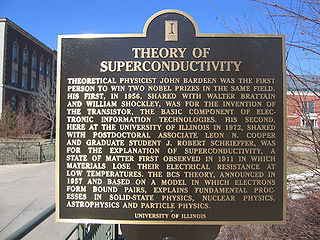
In physics, theBardeen–Cooper–Schrieffer (BCS) theory is the first microscopic theory of superconductivity since Heike Kamerlingh Onnes's 1911 discovery. The theory describes superconductivity as a microscopic effect caused by a condensation of Cooper pairs. The theory is also used in nuclear physics to describe the pairing interaction between nucleons in an atomic nucleus.

John Bardeen was an American physicist and electrical engineer. He is the only person to be awarded the Nobel Prize in Physics twice: first in 1956 with William Shockley and Walter Brattain for the invention of the transistor; and again in 1972 with Leon N. Cooper and John Robert Schrieffer for a fundamental theory of conventional superconductivity known as the BCS theory.

Superconductivity is a set of physical properties observed in certain materials where electrical resistance vanishes and magnetic fields are expelled from the material. Any material exhibiting these properties is a superconductor. Unlike an ordinary metallic conductor, whose resistance decreases gradually as its temperature is lowered, even down to near absolute zero, a superconductor has a characteristic critical temperature below which the resistance drops abruptly to zero. An electric current through a loop of superconducting wire can persist indefinitely with no power source.
In condensed matter physics, a Cooper pair or BCS pair is a pair of electrons bound together at low temperatures in a certain manner first described in 1956 by American physicist Leon Cooper.

Leon N. Cooper is an American physicist and Nobel Prize laureate who, with John Bardeen and John Robert Schrieffer, developed the BCS theory of superconductivity. His name is also associated with the Cooper pair and the BCM theory of synaptic plasticity.
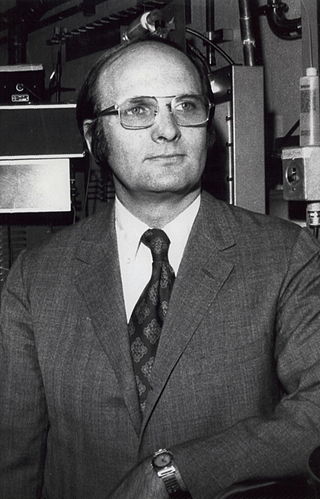
John Robert Schrieffer was an American physicist who, with John Bardeen and Leon Cooper, was a recipient of the 1972 Nobel Prize in Physics for developing the BCS theory, the first successful quantum theory of superconductivity.
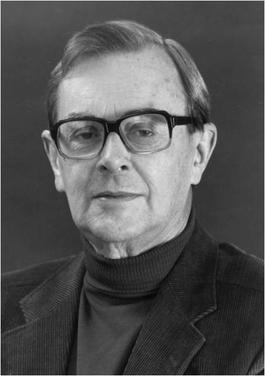
Sir Alfred Brian Pippard, FRS, was a British physicist. He was Cavendish Professor of Physics from 1971 until 1982 and an Honorary Fellow of Clare Hall, Cambridge, of which he was the first President.
Gregory Scott Boebinger was the director of the National High Magnetic Field Laboratory in Tallahassee, Florida, and is currently a professor of physics at Florida State University.
Lev Petrovich Gor'kov was a Russian-American research physicist internationally known for his pioneering work in the field of superconductivity. He was particularly famous for developing microscopic foundations of the Ginzburg–Landau theory of superconductivity. Gor'kov was a professor of physics at Florida State University in Tallahassee, Florida, and a program director in Condensed Matter at the National High Magnetic Field Laboratory. He was one of the Magnet Lab's founding scientists.
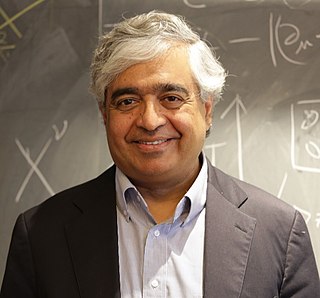
Subir Sachdev is Herchel Smith Professor of Physics at Harvard University specializing in condensed matter. He was elected to the U.S. National Academy of Sciences in 2014, received the Lars Onsager Prize from the American Physical Society and the Dirac Medal from the ICTP in 2018, and was elected Foreign Member of the Royal Society ForMemRS in 2023. He was a co-editor of the Annual Review of Condensed Matter Physics 2017–2019, and is Editor-in-Chief of Reports on Progress in Physics 2022-.

David R. Nelson is an American physicist, and Arthur K. Solomon Professor of Biophysics, at Harvard University.

Robert Joseph Cava is a solid-state chemist at Princeton University where he holds the title Russell Wellman Moore Professor of Chemistry. Previously, Professor Cava worked as a staff scientist at Bell labs from 1979–1996, where earned the title of Distinguished Member of the Technical Staff. As of 2016 his research investigates topological insulators, semimetals, superconductors, frustrated magnets and thermoelectrics.
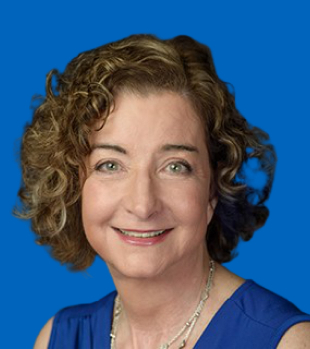
Laura H. Greene is the Marie Krafft Professor of Physics at Florida State University and chief scientist at the National High Magnetic Field Laboratory. She was previously a professor of physics at the University of Illinois at Urbana-Champaign. In September 2021, she was appointed to the President's Council of Advisors on Science and Technology (PCAST).
Elihu Abrahams was a theoretical physicist, specializing in condensed matter physics.
Aharon Kapitulnik is an Israeli-American experimental condensed matter physicist working at Stanford University. He is known primarily for his work on strongly correlated electron systems, low dimensional electronic systems, unconventional superconductors, topological superconductors, superconductivity and magnetism, transport in bad metals and precision measurements.
Mohit Randeria is a US-based Indian condensed matter physicist and a professor of physics at Ohio State University. Known for his research on condensed matter theory and superconductivity, Randeria is an elected fellow of the American Physics Society. The Council of Scientific and Industrial Research, the apex agency of the Government of India for scientific research, awarded him the Shanti Swarup Bhatnagar Prize for Science and Technology, one of the highest Indian science awards, for his contributions to physical sciences in 2002. He was awarded the 2002 ICTP Prize of the International Center for Theoretical Physics, Trieste and the 2022 John Bardeen Prize.

Thomas Maurice Rice, known professionally as Maurice Rice, is an Irish theoretical physicist specializing in condensed matter physics.
Vivien Zapf is an American research scientist at the National High Magnetic Field Laboratory pulsed field facility at Los Alamos National Laboratory.
William P. Halperin is a Canadian-American physicist, academic, and researcher. He is the Orrington Lunt Professor of Physics at Northwestern University.
Kazumi Maki was a Japanese theoretical physicist, known for his research in "superconductivity, superfluid ³He, and quasi‑one‑dimensional (1D) materials."
References
- ↑ "Distinguished Professors". ufl.edu. Retrieved May 14, 2017.
- ↑ "Peter Hirschfeld". ufl.edu. Retrieved May 14, 2017.
- ↑ "Lab". ufl.edu. Retrieved May 14, 2017.
- ↑ "award-winners". ufl.edu. Retrieved Dec 19, 2021.
- ↑ "APS Fellow Archive". American Physical Society. Retrieved Dec 19, 2021.
- ↑ "Physics Department News". 18 January 2022. Retrieved Jan 31, 2022.
- ↑ "John Bardeen Prize" . Retrieved Jan 31, 2022.